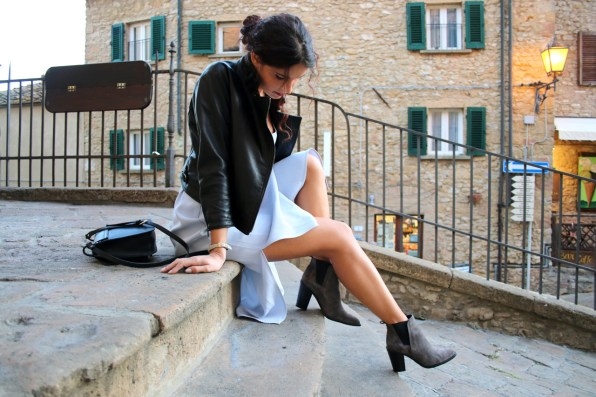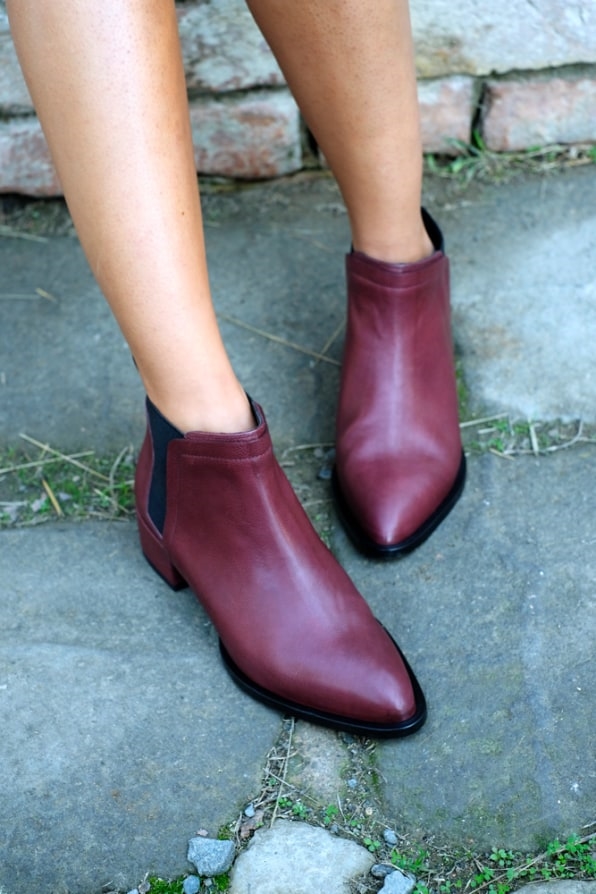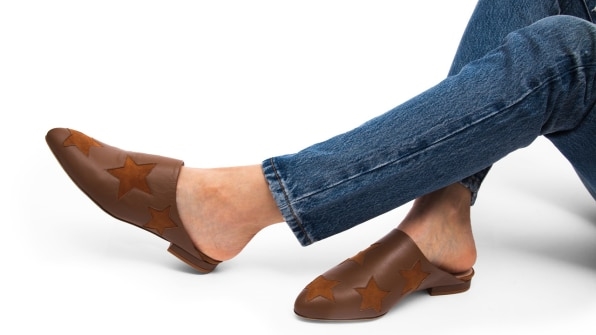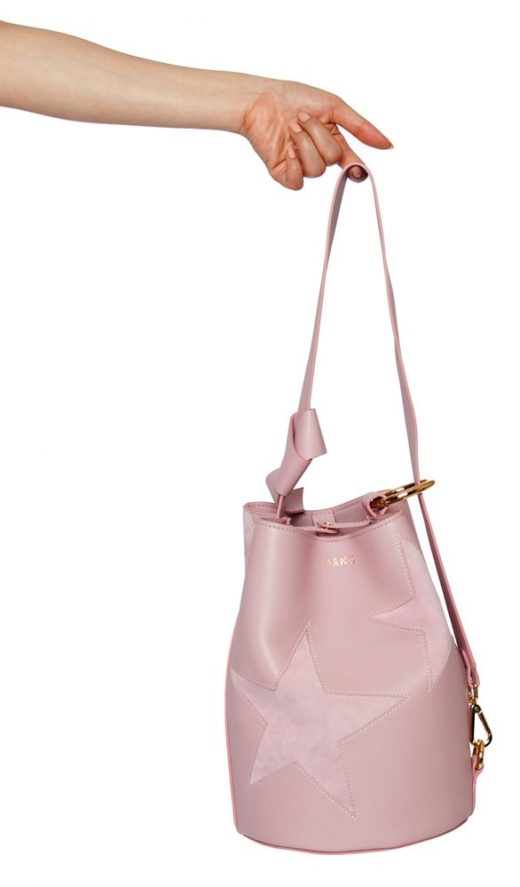The future of luxury fashion? Getting to know your shoemaker
When you order a pair of $218 leather sandals or $198 star-enblazoned mules from leather accessories startup Arno Cooperative, you’ll find a few surprises when the package arrives at your doorstep.
There will be a little card with a photo of one of the Italian artisans who made your new leather shoes, bag, or jacket. You’ll also find a pre-stamped postcard with a hand-drawn map on it of all the places in Tuscany where Arno makes its products. You can send the card to whomever you choose, but if you’d like to send a thank-you note to the man or woman who made the item you just purchased, you can send the postcard back to Arno’s founders, who will deliver it to the right person.
“We’ve been surprised by how many of our customers actually choose to send the cards back to us,” says Rachel Arnow, one of the two women who launched Arno in earlier this year and has recently decamped to Tuscany to oversee the brand’s production. “There’s a nice little collection of notes at the workshop from customers saying ‘thank you.’”

Historically, fashion brands across the price spectrum have been very secretive about their supply chains. At times, this has allowed them to operate out of very low-wage, unregulated factories where workers are treated poorly. But after hearing so many high-profile stories of poor worker treatment–including the tragic 2013 collapse of the Rana Plaza factory in Bangladesh–customers have become more demanding. They want to know about the manufacturing processes behind the garments they wear. Arno’s founders are taking transparency to a new level. Not only do their customers know where their shoes were made, they can see a picture of the shoemaker who crafted it by hand. It’s a level of visibility into the supply chain that we don’t see very often in the world of fashion.
Arnow, who trained as a shoe designer, founded the Arno Cooperative with her friend Defne Crowe, a PR professional based in San Francisco. Like many other luxury startups that have hit the market over the last few years, Arno sells products directly to the consumer, bypassing traditional retailers–and their price markups–allowing it to sell products at a fraction of the cost of traditional luxury brands, with sandals starting at $198. The brand collaborates with family-owned factories in a small region just outside Florence, Italy. Products are made by a small team of artisans, who each have extensive experience making leather goods. One of these factories has chosen to invest in Arno, which is unusual since it is usually fashion brands that invest in manufacturing facilities. “We don’t see our suppliers are separate from us, as a brand,” says Crowe. “We really see them as partners, hence our name.”

Brands like Everlane and M.Gemi, which pioneered this model, offered more insight into their manufacturing than we had previously seen in the fashion industry, by sharing details about the factories they use. Everlane’s website, for instance, has a database of each facility, where it is located, how many workers are employed there, and who the owner is. When you buy a shoe from M.Gemi, you can see where in Italy it was made. Part of this is a way to help consumers understand the kind of quality that goes into their products. Until recently, shoppers tended to connect high price to good craftsmanship, but this new wave of brands wants to prove that it’s possible to create luxury products at lower prices than brands you might find on the racks and shelves of Bloomingdale’s or Saks Fifth Avenue.
Arno wants to take this approach a step further, by humanizing the manufacturing process even more and giving customers a glimpse of the person who actually made the item they purchased. Besides the photograph that comes in their package, they can go to the Arno website, which offers bios of each artisan full of details about their families and interests. For instance, Laura, Arno’s head of quality control, was born on the island of Sardinia, and went into an artisan apprenticeship program immediately after middle school. Since she lives two streets away from the factory, she goes home for lunch every day, and returns to her village every summer for a vacation.
“We really believe this is the future of luxury,” says Crowe. “People want to know how their products were made, and the natural extension of that is to connect with the human beings who made their new shoes or bag.”


Arno is bringing a transparent approach to higher-end design. Arnow herself designs the brand’s small collections, which are meant to be classics with a twist. For instance, the brand has a leather bucket bag in a traditional silhouette, but is imprinted with subtle suede stars. It comes in blue and pink, in additional to the more classic brown and black colors. Arno’s founders have been deliberate about creating a small, curated array of products, and using customer buying patterns to dictate what they design going forward. Given that Arnow herself is so close to the production facility, she can continually update the designs. “Most brands are designing their products in one place and sending them to another place to be manufactured,” she says. “But there are benefits to living and designing so close to the factory.”
The company is also careful about how much of each product it makes. The factory makes items in small batches, based on the orders that come in, so there is very little wasted inventory, which is better for the environment and also for the company’s bottom line. “This is how products used to be made in the past, before we made things at such a massive scale,” says Crowe. “We believe making things this way results in better-quality products, less environmental waste, and a better quality of life for workers.”
It is still early days for Arno, and it will be intriguing to see how the brand works to maintain its human touch as it scales. If things go well for the brand, it will eventually outgrow its current factories and employ a larger group of artisans to make products. That might make it harder to ensure quality control and to pinpoint which craftsperson made each individual item. And it may be more challenging for a customer to send that particular shoemaker or leather cutter a little thank-you postcard.
(17)


